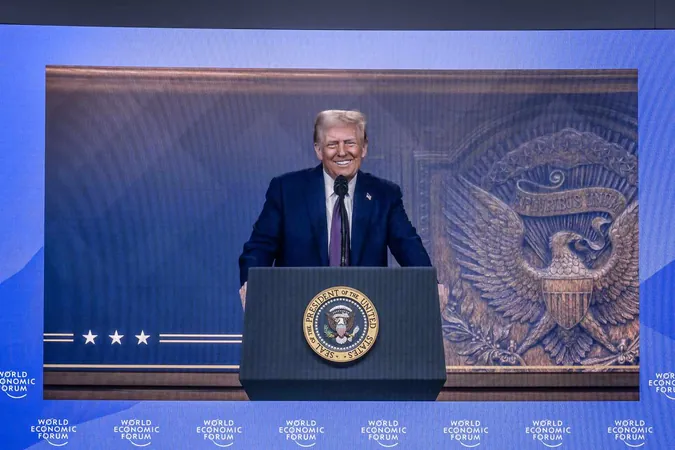
Trump Claims Major Banks Are Shunning Conservatives: What You Need to Know
2025-01-23
Author: Ying
In a surprising turn of events, President Donald Trump recently made headlines during his remarks at the World Economic Forum in Davos, Switzerland, alleging that major U.S. banks, particularly Bank of America and JPMorgan Chase, are discriminating against conservative clients. His comments prompted swift responses from these financial giants, who rushed to defend their practices.
"I hope you start opening your bank to conservatives," Trump exclaimed, highlighting complaints from many on the right who claim they face barriers in doing business with these institutions. His pointed remarks specifically targeted Bank of America CEO Brian Moynihan and were clearly aimed at addressing what he perceives as an anti-conservative bias in banking.
In response to Trump's allegations, both Bank of America and JPMorgan issued statements asserting that they do not take political affiliation into account when dealing with clients. "We have never and would never close an account for political reasons, full stop," stated a JPMorgan representative. They emphasized their commitment to adhering to laws and regulations while also advocating for a reform in the regulatory framework surrounding financial crime.
Bank of America reinforced their position by stating, "We serve more than 70 million clients and we welcome conservatives." They acknowledged the complexities introduced by government regulations but reiterated that account closures are never influenced by clients' political affiliations.
This incident isn't just about banking practices; it underscores a broader debate about the intersection of finance and politics. As the banking industry faces increasing scrutiny from various political factions, it's clear that banks are caught in the crosshairs of a polarized environment. With calls for transparency and equality in financial services rising, the actions of banks in the coming months will be pivotal.
As these powerful institutions navigate the intricate landscape of public perception and regulatory demands, one question remains: Are they truly unbiased in their services, or is there an underlying trend where political beliefs can shape access to financial resources? The debate continues to unfold, capturing the attention of both supporters and critics alike.



 Brasil (PT)
Brasil (PT)
 Canada (EN)
Canada (EN)
 Chile (ES)
Chile (ES)
 Česko (CS)
Česko (CS)
 대한민국 (KO)
대한민국 (KO)
 España (ES)
España (ES)
 France (FR)
France (FR)
 Hong Kong (EN)
Hong Kong (EN)
 Italia (IT)
Italia (IT)
 日本 (JA)
日本 (JA)
 Magyarország (HU)
Magyarország (HU)
 Norge (NO)
Norge (NO)
 Polska (PL)
Polska (PL)
 Schweiz (DE)
Schweiz (DE)
 Singapore (EN)
Singapore (EN)
 Sverige (SV)
Sverige (SV)
 Suomi (FI)
Suomi (FI)
 Türkiye (TR)
Türkiye (TR)
 الإمارات العربية المتحدة (AR)
الإمارات العربية المتحدة (AR)